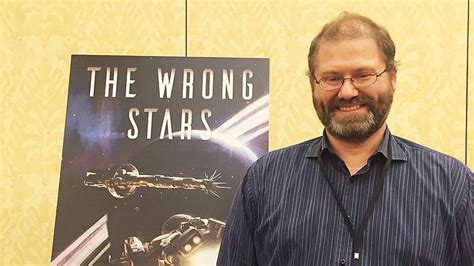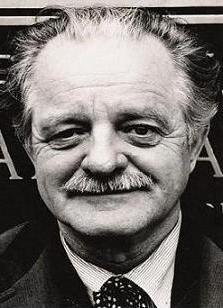A Quote by Stephen Jay Gould
Even the standard example of ancient nonsense - the debate about angels on pinheads - makes sense once you realize that theologians were not discussing whether five or eighteen would fit, but whether a pin could house a finite or an infinite number.
Related Quotes
If I became lost in the multiverse, exploring infinite parallel dimensions, my only criterion for settling down somewhere would be whether or not I could find you: and once I did, I'd stay there even if it was a world ruled by giant spider-priests, or one where killer robots won the Civil War, or even a world where sandwiches were never invented, because you'd make it the best of all possible worlds anyway, and plus we could get rich off inventing sandwiches.
I will not let the Patriot Act, the most unpatriotic of acts, go unchallenged. At the very least, we should debate. We should debate whether or not we are going to relinquish our rights, or whether or not we are going to have a full and able debate over whether or not we can live within the Constitution, or whether or not we have to go around the Constitution.
It is known that there are an infinite number of worlds, simply because there is an infinite amount of space for them to be in. However, not every one of them is inhabited. Therefore, there must be a finite number of inhabited worlds. Any finite number divided by infinity is as near to nothing as makes no odds, so the average population of all the planets in the Universe can be said to be zero. From this it follows that the population of the whole Universe is also zero, and that any people you may meet from time to time are merely the products of a deranged imagination.
The moral issues with which Marcus struggles would be, as he points out, unchanged whether the universe were mechanical and devoid of meaning or value or ruled by deity or Providence; whether the will were in fact free or determined; whether there were or were not a future life, or any even fugitive rewards and punishments at all.
We know that there is an infinite, and we know not its nature. As we know it to be false that numbers are finite, it is therefore true that there is a numerical infinity. But we know not of what kind; it is untrue that it is even, untrue that it is odd; for the addition of a unit does not change its nature; yet it is a number, and every number is odd or even (this certainly holds of every finite number). Thus we may quite well know that there is a God without knowing what He is.
A question arises regarding the angels who dwell with us, serve us and protect us, whether their joys are equal to those of the angels in heaven, or whether they are diminished by the fact that they protect and serve us. No, they are certainly not; for the work of the angels is the will of God, and the will of God is the work of the angels; their service to us does not hinder their joy nor their working. If God told an angel to go to a tree and pluck caterpillars off it, the angel would be quite ready to do so, and it would be his happiness, if it were the will of God.
Far be it from us to doubt that all number is known to Him 'Whose understanding is infinite' (Ps. 147:5). The infinity of number, though there be no numbering of infinite numbers, is yet not incomprehensible by Him Whose understanding is infinite. And thus, if everything which is comprehended is defined or made finite by the comprehension of him who knows it, then all infinity is in some ineffable way made finite to God, for it is comprehensible by His knowledge.





































